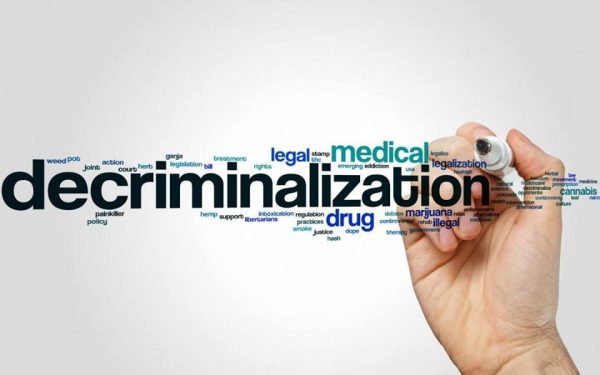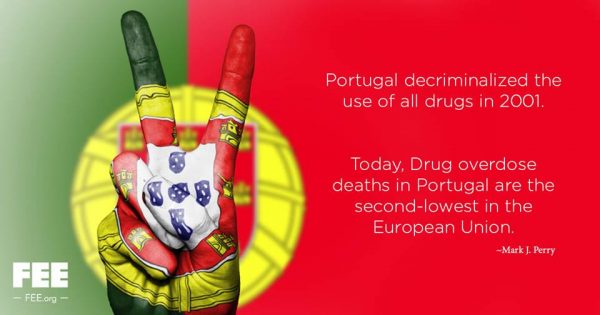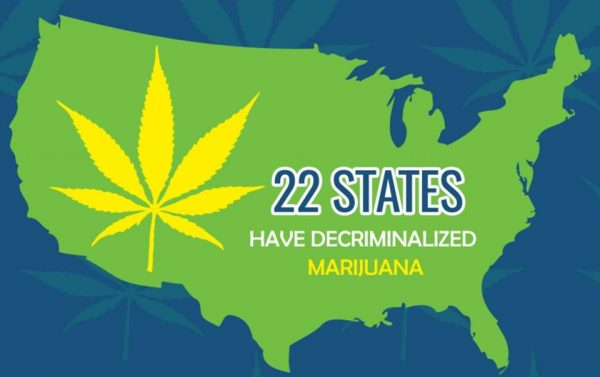Decriminalizing all illicit drugs is the idea making its way through the halls of government in our neighbor to the north. Canada is looking at decriminalizing all illicit drugs.
In a few short months, Canada will legalize marijuana nationwide. Canada will be the first member state of the G7 to take the stance to legalize pot. The estimates are that marijuana could foster a 7 billion Canadian dollar industry.
Regulations and procedures are still in the works, but the smoke (all puns intended) is on the horizon, and it smells like weed. Medical marijuana is legal now but soon all uses will be open and legal.
Canada is looking at taking another step in the direction of drug enforcement relaxation by decriminalizing all illicit drug use or possession. Crazy? Insane idea? Not really, and there is a lot of data supporting the notion. In fact, there are over 14 years of data to examine.
The war on drugs started with Richard Nixon in the 1970s. Since then, the United States government has spent nearly $1 trillion towards eradicating the drug problem in this country. A whopping $36 billion was spent in the war on drugs in 2015 alone. That number does not include the cost of incarceration for nonviolent drug offenders once they are arrested and sentenced. Around $40 billion is spent each year on incarcerating American prisoners for drug-related crimes. That means that an additional $40 billion needs to be added to the $36 billion price tag for the war on drugs, bringing the total to $76 billion dollars.
In Canada, the idea is one of more than two dozen resolutions set to debate the drug issues and proposals when the political party gathers for their national convention. The resolution is one of three put forward by the national caucus, suggesting widespread support among liberal MPs.
“It’s one of the few issues where we’re taught from a young age that drugs are bad and that it’s normal to throw people in jail for using drugs,” said Nathaniel Erskine-Smith, a liberal MP who has championed decriminalization.

Earlier this year, the New Democratic Party became the first major political party in Canada to officially champion the idea of decriminalization. The city of Vancouver has recommended the federal government immediately decriminalize personal possession of illicit drugs.
“We are witnessing a horrific and preventable loss of life as a poisoned drug supply continues to kill our neighbors, friends, and family,” Gregor Robertson, Vancouver’s mayor, said in a statement. Organizations such as the Global Commission on Drug Policy, advising the World Health Organization, back the idea.
Using Portugal as the Model
In 2001, Portugal decriminalized all illicit drugs. They coupled that change with an expansion of treatment and harm reduction services such as safe injection sites. When a person is caught with drugs they appear before dissuasion commissions, which can refer people to treatment or impose monetary fines.
Statistics suggest the approach is working. Portugal has seen a dramatic decline in overdose deaths. HIV infection rates and drug-related crimes have decreased, while the number of drug users seeking treatment has increased.

Drugs are not legal in Portugal, and drug dealers and traffickers are still prosecuted and sent to jail. What the decriminalization has done is to affect the way the user is treated. The Portuguese police do not arrest those found with small amounts of illicit drugs in their possession. Persons caught with less than a ten-day supply, which adds up to about a gram of heroin, ecstasy, or amphetamine, two grams of cocaine, and up to 25 grams of marijuana, are sent to appear before a “dissuasion panel.” Here they meet with social and psychological experts as well as medical staff if needed.
The chances that Canada will decriminalize all illicit drugs are a stretch. Justin Trudeau, Canada’s prime minister, has repeatedly said his government is not considering legalizing any other drugs besides marijuana.
And in the US?
Chuck Schumer (D-NY), the Senate’s top Democrat, announced he is introducing legislation to decriminalize marijuana. His bill would decriminalize marijuana on a federal level.
The legislation would maintain federal authority to regulate marijuana advertising in the same way it does alcohol and tobacco advertising. The aim, Schumer said, “is to ensure that marijuana businesses aren’t allowed to target children in their advertisements.”
“The time has come to decriminalize marijuana,” Schumer said. “My thinking—as well as the general population’s views—on the issue has evolved, and so I believe there’s no better time than the present to get this done. It’s simply the right thing to do.”
Just to put things in perspective, 22 states have passed laws decriminalizing certain marijuana possession offenses. Some states have completely legalized the use, production, and sale of marijuana. Others have mandated no jail time for small amounts and treated the offense like a traffic infraction.

While the decriminalization of all illicit drugs is a far stretch, there is clearly some adjustments in the federal laws that need to be made. The cost of fighting this never-ending war and the failure of the current policies is evident.
When I was a street officer in Texas, I had a very hard time arresting a person for possession of a joint. At the time it was meted with a traffic ticket, and then a few months later, the same offense would cause that very same person years in jail and a ruined life. Fairness comes to mind.
The national attitude on marijuana is changing. It is time state and federal governments got in step with the wishes of the public on this issue.
















